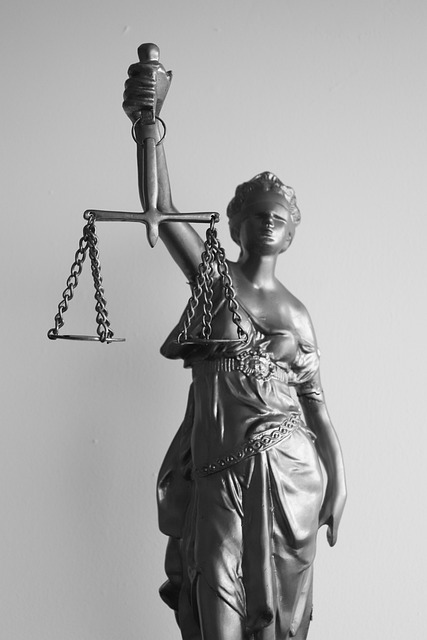Plea negotiation techniques are vital skills for defense lawyers, enabling them to navigate complex criminal cases, especially white-collar defenses. By engaging in open dialogue with prosecutors, attorneys can secure favorable outcomes like reduced charges and lighter sentences. This process requires strategic communication, understanding client circumstances, and leveraging legal expertise to propose mutually beneficial solutions while upholding justice and minimizing negative consequences. Effective plea agreements balance client interests with system integrity, considering legal principles, rehabilitation, and community insights to achieve just and equitable resolutions.
In the intricate dance of criminal law enforcement, plea negotiation techniques for defense lawyers stand as a cornerstone, shaping outcomes and preserving fairness. This article delves into the art and science of these negotiations, exploring strategies that bridge communication gaps between defense attorneys and prosecutors. From understanding the plea bargain process to considering ethical best practices, we uncover the nuances that can lead to mutually agreeable resolutions.
- Understanding Plea Negotiation: A Cornerstone of Criminal Defense
- Strategies for Effective Communication Between Defense Lawyers and Prosecutors
- The Art of Reaching Mutual Agreement: Plea Bargain Process
- Ethical Considerations and Best Practices in Plea Negotiation Techniques
Understanding Plea Negotiation: A Cornerstone of Criminal Defense

Plea negotiation is a critical aspect of criminal defense, offering defendants the chance to resolve their cases outside of trial. This strategic process involves lawyers and prosecutors discussing potential agreements, aiming for a mutually acceptable outcome. Defense lawyers employ various plea negotiation techniques to achieve the best possible result for their clients, which may include reduced charges or a lighter sentence.
Understanding these techniques is essential for both defense lawyers and those interested in general criminal defense. For instance, in white-collar cases, negotiating a plea deal can help avoid indictment and its potential consequences. By engaging in open communication and considering all options, lawyers can guide their clients through this intricate process, ensuring they make informed decisions that align with their legal interests.
Strategies for Effective Communication Between Defense Lawyers and Prosecutors

Effective communication is key to successful plea negotiations, a vital aspect of criminal law enforcement. Defense lawyers should employ strategic techniques throughout all stages of the investigative and enforcement process. One crucial approach is to maintain open lines of communication with prosecutors, fostering an environment conducive to negotiation. By doing so, lawyers can navigate complex cases and find mutually beneficial solutions.
Plea negotiation techniques for defense lawyers involve a nuanced understanding of their respective business and the charges against their clients. This knowledge enables them to present compelling arguments, consider alternative resolutions, and ultimately reach agreements that serve justice while mitigating potential consequences for their clients, especially in cases involving white-collar and economic crimes.
The Art of Reaching Mutual Agreement: Plea Bargain Process

The art of reaching mutual agreement in criminal law enforcement is a delicate dance that requires skilled plea negotiation techniques for defense lawyers. Plea bargains play a pivotal role in navigating the legal system, offering both advantages and complexities for all involved parties. Defense attorneys must adeptly balance their client’s best interests with the strategic considerations unique to each case. This process involves intricate discussions, where prosecutors and defenders engage in persuasive argumentation, weighing evidence, and exploring alternative resolutions.
Effective plea negotiation techniques demand a deep understanding of legal principles, an assessment of the strength of the case, and a keen awareness of the client’s preferences. For both corporate and individual clients facing high-stakes cases, such as white-collar defense, successful plea bargaining can significantly mitigate potential outcomes. Lawyers must employ various strategies, from exploring lesser charges to negotiating sentence concessions, ensuring their clients receive just and proportional treatment within the legal framework.
Ethical Considerations and Best Practices in Plea Negotiation Techniques

Plea negotiation techniques for defense lawyers involve navigating complex ethical considerations. It’s crucial to balance achieving the best possible outcome for the client with upholding the integrity of the criminal justice system. Lawyers must ensure transparency, avoid coercion, and respect the rights of both the defendant and victims throughout the process. A successful plea agreement should be mutually beneficial, taking into account not just legal consequences but also rehabilitation and reintegration goals.
Best practices in plea negotiation focus on open communication, active listening, and strategic planning. Defense attorneys play a pivotal role in guiding clients through all stages of the investigative and enforcement process. By employing philanthropic and political communities’ insights, lawyers can advocate for alternative resolutions that address underlying issues without resorting to harsh penalties. This approach not only achieves extraordinary results but also fosters a more just and equitable legal system.
Plea negotiation techniques for defense lawyers are a critical component of criminal law enforcement, fostering efficient case resolution while ensuring fairness and ethical conduct. By mastering communication strategies and understanding the plea bargain process, attorneys can navigate complex legal landscapes, reaching mutually agreeable outcomes that benefit both parties. This article has explored key aspects, from the fundamentals of plea negotiations to essential ethical considerations, providing valuable insights for defense lawyers seeking to excel in this vital area of criminal defense.






